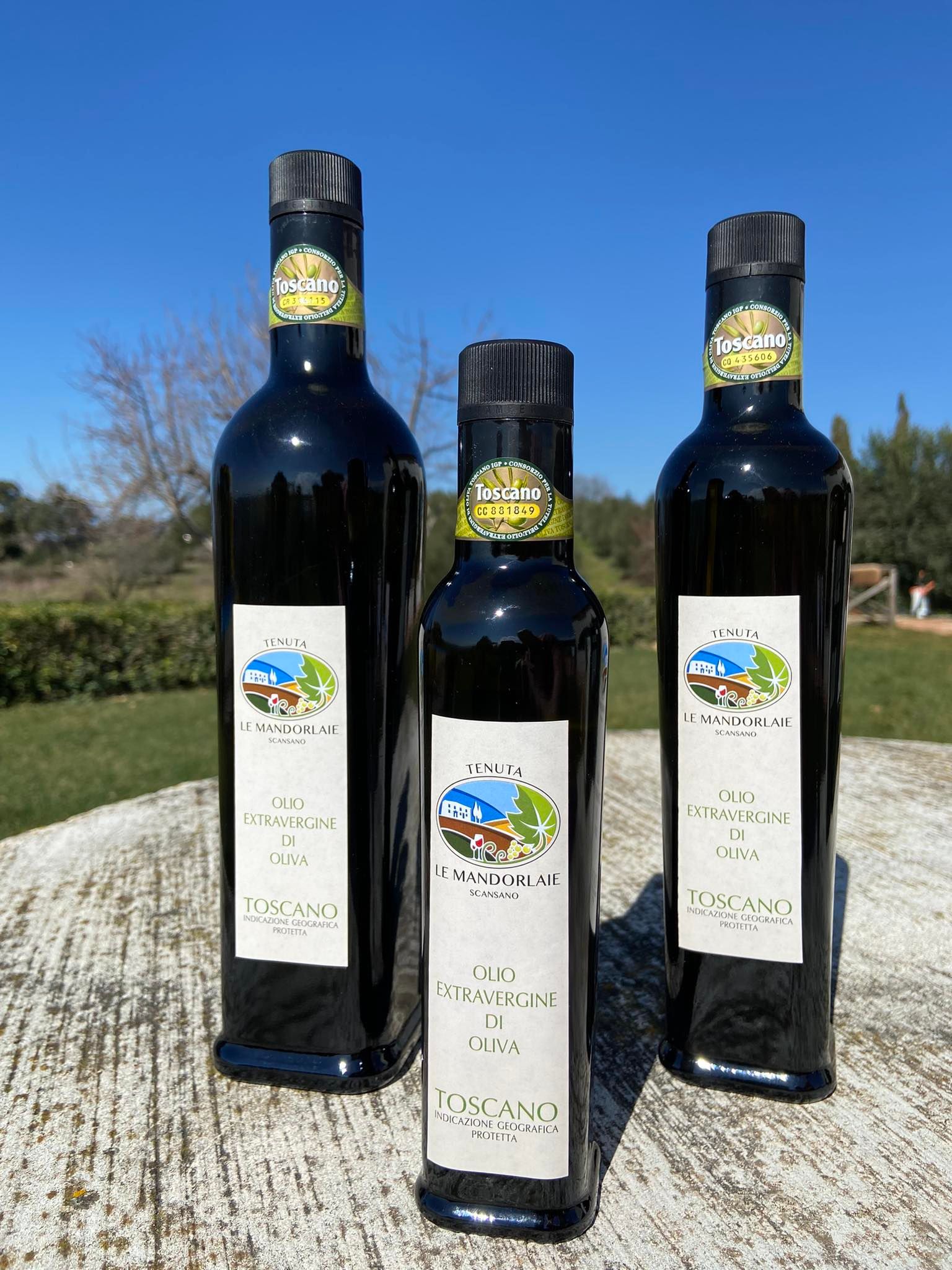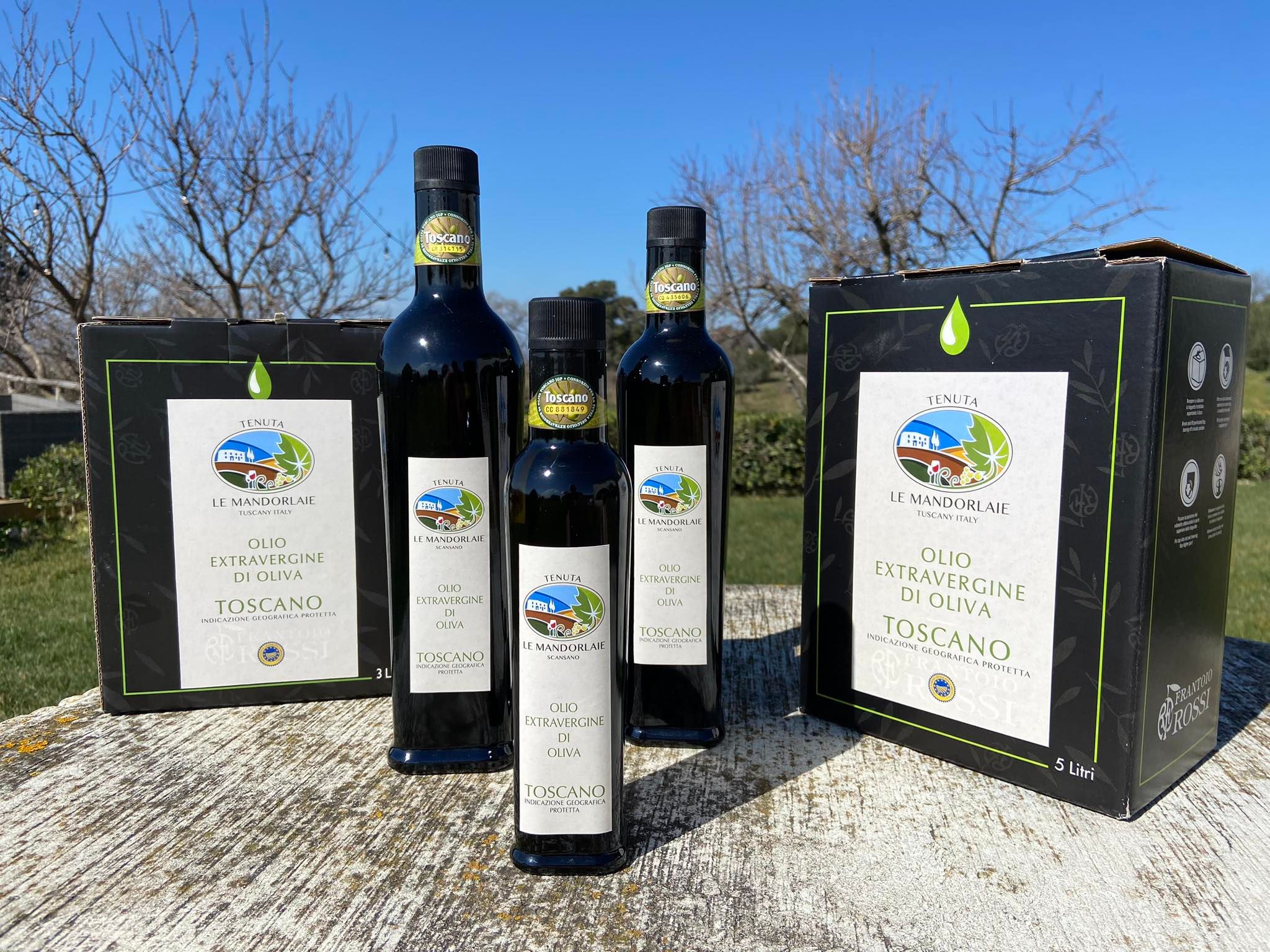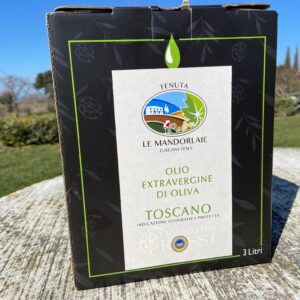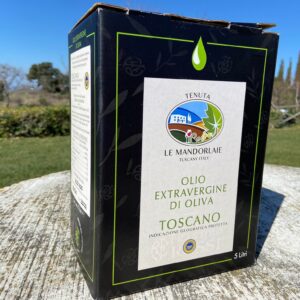
Best way to store Extra Virgin Olive Oil
 Let’s delve deeper into each of the key steps for the best way to store extra virgin olive oil to properly to maintain its quality, flavor, and shelf life.
Let’s delve deeper into each of the key steps for the best way to store extra virgin olive oil to properly to maintain its quality, flavor, and shelf life.
The Right Container, Dark Glass or UV-Protected Bottles
Extra virgin olive oil should be stored in containers made of dark glass or those with UV protection. This is because exposure to light, particularly ultraviolet (UV) light, can lead to oxidation. When the oil oxidizes, it can develop a rancid taste and lose some of its nutritional value. Dark glass or UV-protected bottles help shield the oil from harmful light, preserving its freshness.
Maintain a Cool and Dark Location
It’s crucial to store extra virgin olive oil in a cool and dark place. Temperature fluctuations can have a detrimental effect on the oil, causing condensation inside the bottle, which can lead to spoilage. The ideal storage temperature is around 57-70°F (14-21°C). Avoid extreme heat, as it can accelerate the oxidation process, leading to off-flavors and a decrease in quality.
Direct sunlight should be avoided as it can heat up the oil and expose it to UV radiation. This can cause chemical reactions that harm the oil’s flavor and nutritional properties.
Seal the Container Tightly, Minimize Air Contact
Air contains oxygen, which can lead to the oxidation of olive oil. To prevent air from entering the bottle, ensure that the container is sealed tightly after each use. Oxidation can turn the oil rancid and affect its flavor and quality. Keeping the container tightly sealed preserves the oil’s freshness.
Avoid Strong Odors, Odor Absorption
Extra virgin olive oil is prone to absorbing odors from its surroundings. To maintain its pure and delicate flavor, keep it away from strong-smelling foods and substances in your storage area. Strong odors can easily infiltrate the oil and alter its taste.
Minimize Air Exposure, Choose Appropriate Bottle Size
If you don’t use olive oil frequently, consider purchasing smaller bottles. Smaller containers result in less air being in contact with the oil, reducing the risk of oxidation. This is especially useful if you have a large bottle of olive oil that you don’t plan to finish quickly.
Decant into Smaller Bottles
Transferring smaller quantities of olive oil from a larger, less frequently used container into a smaller, everyday use bottle is a practical way to minimize air exposure. This reduces the frequency of opening the primary container, thereby preserving the oil’s quality.
Extended Shelf Life, refrigeration
While it’s not necessary to refrigerate olive oil, doing so can extend its shelf life. Refrigeration slows down the oxidation process and helps maintain the oil’s quality. However, keep in mind that olive oil may solidify when exposed to cold temperatures. To use it, allow it to return to room temperature. Be cautious about repeated temperature changes, as they can cause condensation inside the bottle, potentially affecting the oil’s quality. For this reason, some individuals prefer to keep olive oil at a consistent room temperature.
By following these detailed storage guidelines, you can ensure that your Tenuta Le Mandorlaie IGP Olive Oil Toscana extra virgin olive oil remains in excellent condition, preserving its freshness, flavor, and quality over an extended period. Regularly monitoring the oil’s taste, aroma, and appearance will help you assess its condition and determine when it’s time to replace it. Proper storage is key to enjoying the full benefits and culinary delights that our extra virgin olive oil has to offer.




